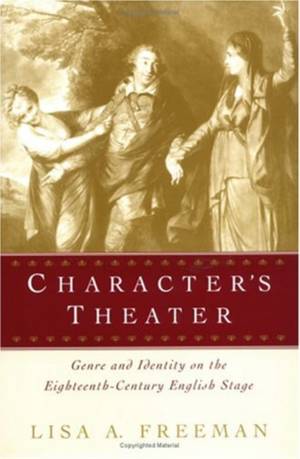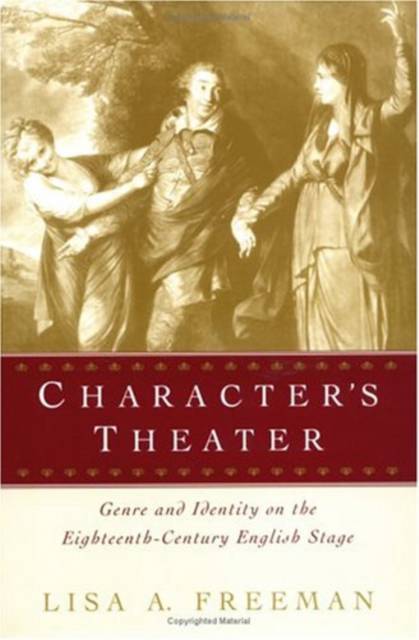
- Retrait en 2 heures
- Assortiment impressionnant
- Paiement sécurisé
- Toujours un magasin près de chez vous
- Retrait gratuit dans votre magasin Club
- 7.000.0000 titres dans notre catalogue
- Payer en toute sécurité
- Toujours un magasin près de chez vous
Character's Theater
Genre and Identity on the Eighteenth-Century English Stage
Lisa A FreemanDescription
If the whole world acted the player, how did the player act the world? In Character's Theater, Lisa A. Freeman uses this question to test recent critical discussion of eighteenth-century literature and culture. Much current work, she observes, focuses on the concept of theatricality as both the governing metaphor of social life and a primary filter of psychic perception. Hume's "theater of the mind," Adam Smith's "impartial spectator," and Diderot's "tableaux" are all invoked by theorists to describe a process whereby the private individual comes to internalize theatrical logic and apprehend the self as other. To them theatricality is a critical mechanism of modern subjectivity but one that needs to be concealed if the subject's stability is to be maintained.
Finding that much of this discussion about the "Age of the Spectator" has been conducted without reference to the play texts or actual theatrical practice, Freeman turns to drama and discovers a dynamic model of identity based on eighteenth-century conceptualizations of character. In contrast to the novel, which cultivated psychological tensions between private interiority and public show, dramatic characters in the eighteenth century experienced no private thoughts. The theater of the eighteenth century was not a theater of absorption but rather a theater of interaction, where what was monitored was not the depth of character, as in the novel, but the arc of a genre over the course of a series of discontinuous acts. In a genre-by-genre analysis of plays about plays, tragedy, comedies of manners, humours, and intrigue, and sentimental comedy, Freeman offers an interpretive account of eighteenth-century drama and its cultural work and demonstrates that by deploying an alternative model of identity, theater marked a site of resistance to the rise of the subject and to the ideological conformity enforced through that identity formation.Spécifications
Parties prenantes
- Auteur(s) :
- Editeur:
Contenu
- Nombre de pages :
- 312
- Langue:
- Anglais
Caractéristiques
- EAN:
- 9780812236392
- Date de parution :
- 22-11-01
- Format:
- Livre relié
- Format numérique:
- Genaaid
- Dimensions :
- 157 mm x 234 mm
- Poids :
- 612 g

Seulement chez Librairie Club
Les avis
Nous publions uniquement les avis qui respectent les conditions requises. Consultez nos conditions pour les avis.







